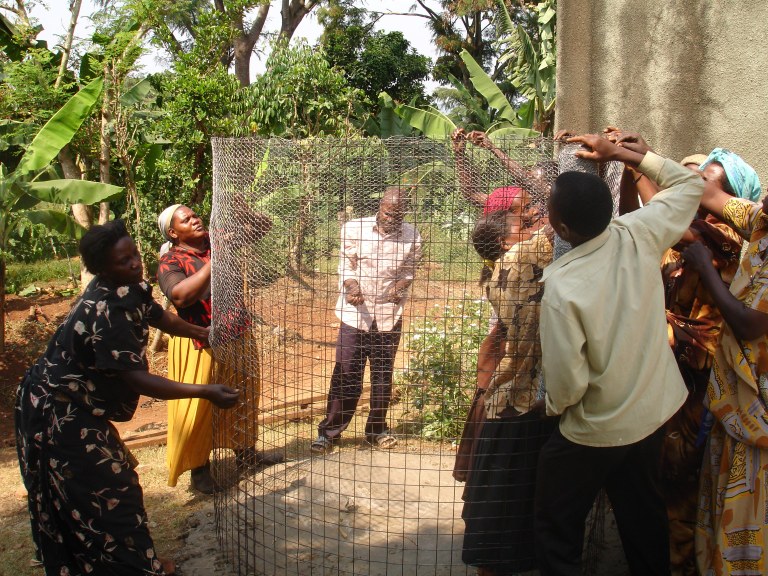From fishing to farming: Land and water resource management at Katosi landing site, Lake Victoria, Uganda
Traditionally the women of Katosi village in Uganda prepared and smoked fish, while their husbands were on Lake Victoria fishing. As fish stocks declined, men had to go further from the village to get a decent catch. This upset the social balance, increased levels of HIV/AIDS and left many more women-headed households. It also meant that families had to shift to agricultural crops from their fishing dependent economy. This has been challenging, especially since women are not allowed to own land and when a man dies, his widow loses the land to his relatives. The Katosi Women’s Development Trust (KWDT), a network of 11 women’s groups, engages women at household level in coordinated development and management of water and land, to protect vital ecosystems and to provide equitable socio-economic benefits.
For 10 years, KWDT has undertaken integrated approaches to community projects, involving water for food and for people, including hygiene and sanitation, sustainable agriculture, and protection of the environment. The approach encourages women’s active involvement in natural resource management and equips households with knowledge about their proper use and management.
Women’s livelihoods improved
The KWDT programme includes:
- Construction of latrines and promotion of good hygiene to reduce diarrhoeal diseases and improve the environment
- Promotion of integrated grazing and crop farming to increase organic food production and conserve soil
- Protection of water sources and construction of rainwater harvesting systems to irrigate household gardens and reduce silting in Lake Victoria
- Construction of energy-saving stoves to reduce over-exploitation of forest and woodlands.
Women’s livelihoods have improved, and the exploitation of fisheries and other essential resources has been reduced. Women are standing alongside men for various leadership roles.
Attitudinal change
KWDT is encouraging attitudinal change among women, to recognise that they can contribute much in social and economic terms to the household and community. Mwera Annette, of the Katosi Women Fishing & Development Association, has joined the beach management committee. She says: “It is good that I am on the committee. I contribute to decision making in meetings; it gives me a lot of confidence to contribute to the well being of the community. I realize the big role women have to play in protection of water resources for benefits from the lake, especially fisheries.”
Women have undertaken training programmes to learn practical skills in entrepreneurship, agricultural production and water and sanitation management. Women are managing small businesses, taking leadership roles and constructing water tanks.
Women are transforming their communities. One problem is how to convince fishing communities to use latrines rather than the lake for excreta disposal. Moreover, the landing site at Katosi village has a high water table, which makes it difficult to construct latrines. KWDT has sensitised households on safe excreta management, especially supporting those closer to the lake to acquire ecological sanitation latrines, a cheaper technology, which provides nutrients for gardening and reduces pollution in the lake.
Nakamatte Agnes, of the Bukwaya Women Group, says: “My household is benefiting from the VIP latrine...it provides privacy, and the children no longer litter faeces everywhere. It has helped keep our home clean. From our cow, we get income through milk sales and the children have milk and better nutrition. I have also been able to construct a house.”
The organisation of women under household-centred approaches enables them to work with each other and with local leaders. KWDT has learnt that a gender-sensitive approach to integrated management of water, land and related resources is crucial and enhances sustainability.
For more information: Margaret Nakato, Coordinator, Katosi Women Development Trust, P.O. Box 33929, Kampala, Uganda



